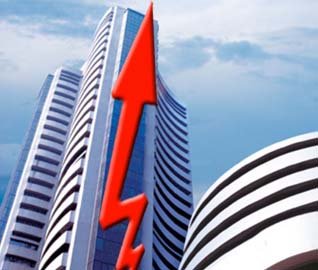Stock Market reaction is considered the barometer of the impact of Union Budget on India Inc. Traditionally, stock markets have witnessed high volatility on the budget day. This time around, Stock Market is looking forward to Union Budget 2009-10 for a clearer direction.
We have seen the break-out performance of Stock Markets after election results were declared and United Progressive Alliance (UPA) got majority without Left support. Experts feel that the post-election surge in Indian Markets was due to the catch-up that Indian Markets had to do vis-a-vis other Emerging Markets like China, Russia and Brazil.
Indian Markets will continue to follow global signals but, will the first Budget of the UPA’s second innings continue the optimism shown by the markets?
Union Budget Historical Perspective
It all began in 1991, when faced with an acute balance of payment crisis, the then finance minister Dr. Manmohan Singh opened up India’s doors to the global economy. Second significant thrust was given by Yashwant Sinha in Budget 2001 when there were some signs of slowing Indian Economy. The Union Budget 2001, herald the beginning of second generation economic reforms.
Yet again, ensuing the global financial crisis, the stage is set for boosting growth drivers in the Indian Economy. Although, Finance Minister Mr. Pranab Mukharjee has reassured a growth oriented Union Budget 2009, will he be able to pack enough ammunition in the Budget 2009-10 to power the much needed third significant push for the Indian Economy?
Historic Performance of Stock Markets on Budget Day
Have a look at the historic performance of Sensex since the year 2000 till the previous full Budget day in the enclosed table.
| Union Budget Day | Change in Sensex | % Change | Intraday Swing |
% Swing |
|
29/02/2000 |
-293.22 |
-5.11% |
519.88 |
9.06% |
|
28/02/2001 |
177.36 |
4.36% |
207.62 |
5.10% |
|
28/02/2002 |
-143.35 |
-3.87% |
194.09 |
5.24% |
|
28/02/2003 |
6.32 |
0.19% |
46.94 |
1.43% |
|
08/07/2004 |
-112.13 |
-2.26% |
195.54 |
3.95% |
|
28/02/2005 |
144.14 |
2.19% |
175 |
2.66% |
|
28/02/2006 |
88.15 |
0.86% |
216.59 |
2.11% |
|
28/02/2007 |
-540.74 |
-4.01% |
497.61 |
3.69% |
|
29/02/2008 |
-245.76 |
-1.38% |
521.34 |
2.92% |
Key Points
- Five out of nine times the Sensex reacted negatively to the Union Budget.
- Largest positive breakout on the budget day was in 2001, when the then Finance Minister, Yashwant Sinha, presented the landmark budget marking the beginning of second generation economic reforms.
- Further, market swing, measured by the Sensex intraday movement range, was significant (2.11% to 9.06%) on the budget day on all occasions except in 2003 when the Sensex intraday range was 1.43% with respect to the previous day’s close.
Finance Minister, Pranab Mukharjee’s perspective on Union Budget 2009-10
In an interview given by Mr. Pranab Mukharjee to CNBC TV18, he had provided some indications of his priorities for Union Budget 2009-10. Enclosed find some excerpts from the same for your review :
- The broad objective is to bring back the economy on the growth trajectory. Adverse impact of the global financial crisis on our growth scenario may continue for a year or so
- Certain sectors like export sectors, particularly textile, leather, gems and jewellery’s, and the IT sector that had been adversely affected by the global crisis needed special attention.
- Infrastructure is to get adequate attention. I do believe that massive investment in infrastructure would help us to come back to the growth trajectory. We need to review resources, delivery systems to the core sector.
- The goal is to bring the economy back on the growth path without indulging in fiscal profligacy. I have priority for both growth and maintaining fiscal prudence, but at what point of time which will get more priority is to be determined depending on the situation.
- What is expected to be done in five years you cannot expect me to do in one year.
- I do agree that it is not an easy job.
Conclusion
India Inc is eagerly looking forward for Union Budget 2009-10. Expectations are sky high, but as mentioned by Finance Minister that what is expected to be done in five years, cannot be expected from him in one year. It remains to be seen if he can present a power packed budget that meets the expectations of larger sections of industry and individuals.
India Inc’s expectation from Budget 2009-10 are too high, and as is the case with any thing with which expectations are high, the delivery is mostly not up to the mark.
- Can Finance Minister Mr. Pranab Mukharjee present the third landmark budget like what his contemporaries, Dr. Manmohan Singh in Budget 1991-92 and Mr. Yashwant Sinha in Budget 2001-02 did?
- Will FM be able to deliver on the high expectation that India Inc has formed from Union Budget 2009-10?
- How will market respond to the Budget 2009? Will it be thunderingly positive for the market or will fizzle out like most of the previous nine budgets?
It is too early to predict, but the only thing certain is that markets will remain extremely volatile during run-up to the Union Budget 2009-10 and on the Budget Day. Do share your perspective on the impact that Union Budget 2009-10 will have on the Stock Markets by leaving a comment on this article.



1 thought on “Stock Markets awaiting Union Budget 2009”
Comments are closed.